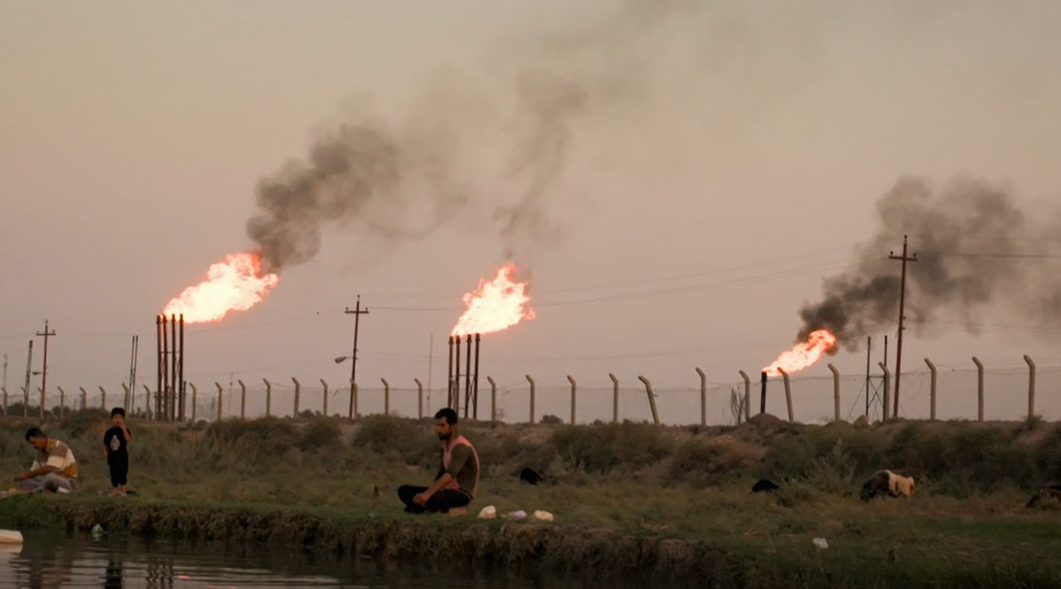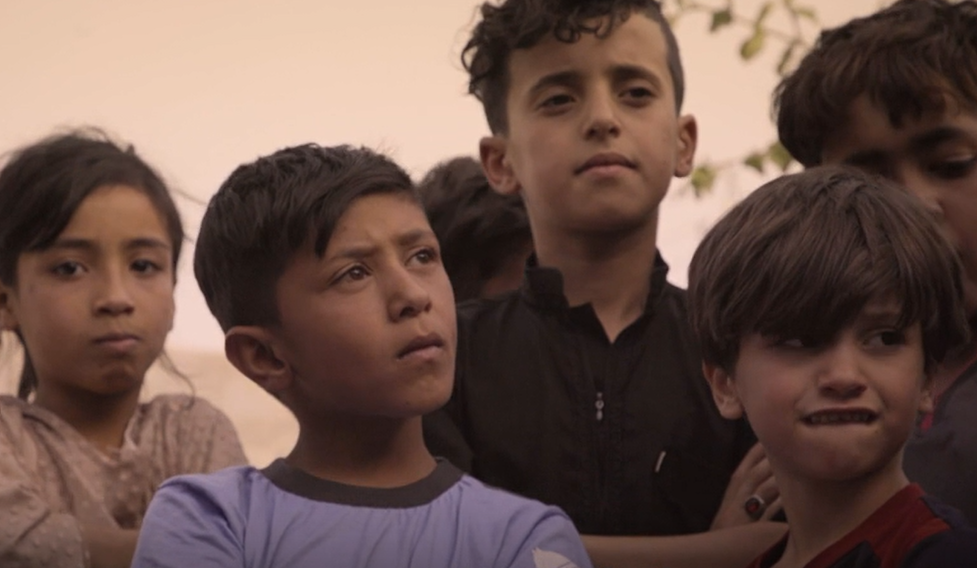Iraqi children are exposed to toxic fumes from the country’s major oil fields. It looks like some oil producers are not following flaring laws. People pay for it with their health and often with their lives. It was brought to the attention of the BBC, which carried out pollution monitoring tests.
Oil Field Emissions Spread to the Air
Using satellite data, the BBC found that Rumalia, the largest oil field in Basra, south-east Iraq, flares more gas than any other place in the world. Based on this fact, she tested Iraqi children for the presence of potentially cancer-causing substances.

For two weeks, the BBC tested cancer-causing chemicals emitted by burning gas in five communities. Analyzes showed “that “benzene levels linked to blood disorders, including leukemia, reached or exceeded Iraq’s national limit in at least four locations.” Urine samples from 52 children showed 70% elevated levels of 2-naphthol, a form of the likely carcinogen naphthalene.
Combustion of gas released from oil wells produces by-pollutants linked to cancer – benzene, carbon dioxide, methane, and black soot. For example, exposure to benzene from diffuse gases may increase the risk of developing acute lymphoblastic leukemia (cancer of the blood and bones). Basara saw a 20% increase in cancer between 2015 and 2018.
Burning Near Habitations
“For health reasons, Iraqi law prohibits flaring within 10 km of people’s homes, but we found towns where gas was burned less than 250 meters from people’s front doors. The nearest flares are just 1.6 miles (2.6 km) from the family’s front door,” the BBC reported, identifying BP and Eni as the main oil companies operating in the Basra region in southeastern Iraq.

Residents in the city of North Rumila themselves observe a significant increase in leukemia among their loved ones. Environmental scientist and professor Shukri Al Hassan told the BBC that cancer spreads like the flu there, and many children are dying from it.
After the BBC reported its findings to Iraq’s oil minister, Ihsan Abdul Jabbar Ismail, the ministry warned all companies to comply with international standards. PB promised to review the state of the oil fields in the interests of the residents. On the other hand, Eni rejects any impact of their activities on human health. The UN has labeled these Iraqi areas as “modern sacrifice zones” where human rights are put aside for profit.
Source: bbc.com/news/science-environment-63083634, pixhere.com




